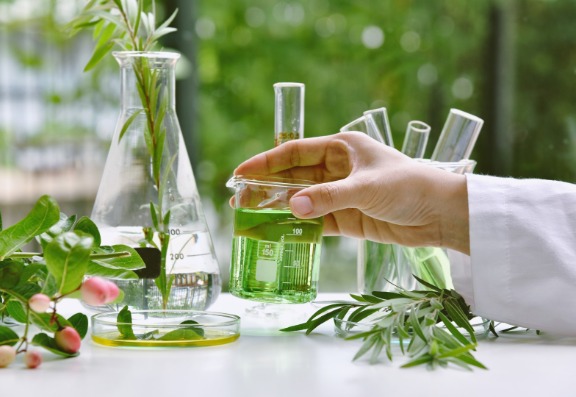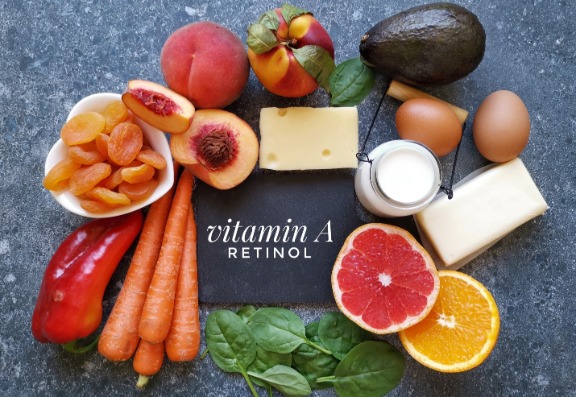What You Should Be Looking For in Your Skincare Products
There are a lot of skincare products out there, from oils to serums, but do you know what’s actually in the products you use? It’s important to know what you’re putting on your skin and what you should be on the lookout for.
Look and Feel
Some products contain ingredients that don’t technically do much to help you out - they’re only there to make the products look, feel, or smell good.
Thickeners, or thickening agents, can be used to give the product a better consistency, like guar gum, xanthan gum, beeswax, and gelatin. Other ingredients are added just to change the colour of the products or make them smell better - sometimes two products will do exactly the same thing, in exactly the same way,
but if one smells of nothing and one smells like a bouquet of flowers, the latter’s going to sell more.
Preservatives
Some products contain preservatives, in order to stop the active ingredients from going off. While the term ‘preservatives’ may make you think of harmful chemicals, these are necessary because of how delicate skincare formulations can be, and also to prevent bacteria from thriving.
The high water content, especially in hydrating skincare products, could be a perfect breeding ground for bacteria, and Propylene Glycol is a preservative that’s particularly effective against microbes and unwanted microorganisms.

Another popular preservative is Phenoxyethanol, which can also be used as a fragrance - it’s practically non-toxic, and if diluted is unlikely to cause any irritation.
Another Popular preservative is sodium benzoate, which can prevent the growth of bacteria and fungi. It’s also used in food and cosmetics products and has been classed as ‘generally recognised as safe (Gras) By the FDA.
Active Ingredients
The active ingredients in skincare products are the ones that are biologically active. In other words, they’re the ones that have proven benefits, from treating redness to minimising signs of ageing and make your skincare products effective.
Not all chemicals are harmful, after all - some can be very good for your skin. Some of the most commonly used are alpha hydroxy acids, otherwise known as AHAs.
This family of acids includes glycolic, lactic, tartaric, and citric acids, and they’re made from natural sources such as fruit and milk. These are often used to treat fine lines and wrinkles, age spots, and irregular pigmentation, and can also be used to help shrink enlarged pores. Keep reading to learn some of the most popular active ingredients out there.
Beta-Hydroxy Acid
Also known as salicylic acid, beta-hydroxy acid has anti-inflammatory effects. It can help remove dead skin cells and improve your skin’s texture and help with acne. One particularly effective product containing this active ingredient is the Obagi CLENZIderm toner, which contains 2% salicylic acid.
Hydroquinone
You can tell which skincare products contain hydroquinone, as they’re often called bleaching creams or lightening agents. These are used on age spots, or dark spots that are related to pregnancy and hormone therapy. In the UK, your doctor can also prescribe you a hydroquinone cream to treat hyperpigmentation.
Kojic Acid
Another remedy for age spots and similar pigment problems, kojic acid is derived from a fungus. It’s used as a lightning agent, and slows the production of melanin. However, if used too often, it can make your skin more susceptible to sunburn.

Retinoids
The retinoid family includes retinol, retinal aldehyde, and retinyl esters.
Derived from vitamin A, retinol can be found in many over-the-counter anti-aging products - these active ingredients can be used for everything from treating acne scars and wrinkles to improving skin texture and skin tone.
L-Ascorbic Acid
Vitamin C is a key active ingredient in keeping your skin looking young and healthy. Although there are many products on the market with vitamin C derivatives, L-ascorbic acid is the only one that you should be using. Vitamin C is the only antioxidant that’s been proven to stimulate collagen synthesis as well as minimise lines, scars, and wrinkles, and L-ascorbic acid can also help with photodamaged skin.
Hyaluronic Acid
Although naturally produced in the body, the levels of hyaluronic acid decrease as we age. It’s a powerful active ingredient that can be used to prevent the appearance of ageing, as well as help hydrate skin - it’s often found in moisturisers.
These are just a few of the most popular ingredients found in skincare products, and each one has different benefits and side effects, which can vary depending on your skin type.
When you’re figuring out which ones are best for you, make sure to monitor your skin, and be wary of combining two different products - while they work fine separately, mixing them could have undesirable effects. You’ll also want to check the strength of the products, which you can find by checking the label.
If you want to read more, the experts at Consulting Room really know what they're talking about and have put together chemical peels, fine lines and wrinkles, pigmentation (age spots), acne, complexion improvement, and scarring FAQs just for you.
If you have more questions, you can use the chemical peels, fine lines and wrinkles, pigmentation (age spots), acne, complexion improvement, and scarring questions feature to talk to our panel of trained medical experts.
If you're keen to get started with any of these treatments right away then you're in luck - those clever folks also have a list of trusted, accredited chemical peels, fine lines and wrinkles, pigmentation (age spots), acne, complexion improvement and scarring clinics in your area.
Many thanks to Dr Sabika Karim who is a specialist in non-surgical and laser procedures, facial rejuvenation and body contouring with 15 years’ experience.
Her explicit focus on delivering the very best results using high-quality products and state-of-the-art equipment has made her one of the most renowned specialists in her field.
Dr Karim’s meticulous attention to detail coupled with her unparalleled cosmetic knowledge ensures her clients receive innovative and safe treatments leading to natural-looking results.
Call Skin Medical clinic now via 01923 59 0057 or visit Skin Medical.

Loved by Victoria Beckham and Kim Kardashian, BBL HEROic™ is now available at Dr Nina Bal’s clinic for anyone ready to upgrade their skin.
A survey reveals that most people trust dermatologists far more than social media influencers, yet many continue to spend money on treatments that don’t work.
Belotero vs. Juvederm: They are two of the most popular fillers for lip augmentation, but which is the right one for you?
Hey, wait!
Before you go.....
Let's stay in touch, pop your details here and we'll send our editor's hand-picked updates on your fave subjects.